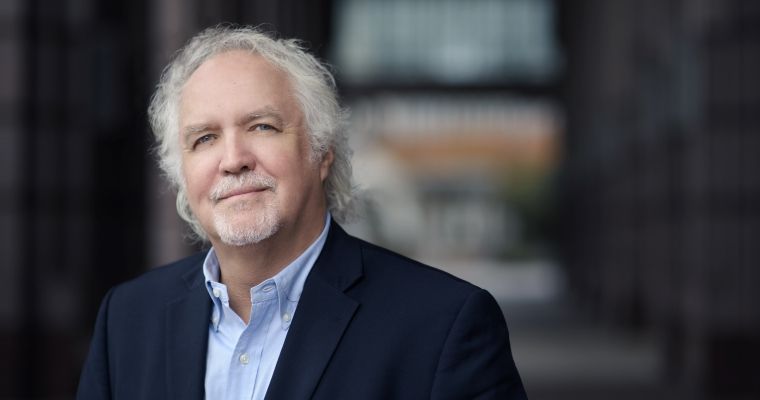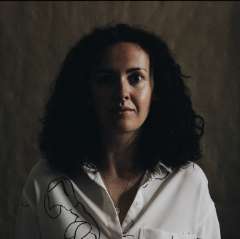The Deutsche Oper Berlin has a longstanding tradition when it comes to performing the operas of Richard Wagner, presenting world class music as well as stagings that are remembered long after their opening nights and regularly revived with stellar casts. A few years ago, the opera company bade farewell to the iconic Ring cycle by Götz Friedrich that shaped many Wagner productions that followed it, but there's already a new Ring in the works, so I spoke with Sir Donald Runnicles, Generalmusikdirektor at the Deutsche Oper Berlin, for some passionate and compelling insight into his work on the new Ring cycle.

“We waited for many, many years before we decided to finally say farewell to the Götz Friedrich Ring, because until you have a worthy successor, there's no reason not to perform that iconic production,” Runnicles explains. This sets the tone for our conversation, that includes plenty of high praise for Norwegian director Stefan Herheim, with whom he closely worked to bring their new vision to life. But just as it was decided to forge a new Ring, the pandemic hit theatres and opera houses worldwide, with an impact that is still felt to this day. “We were all shocked at just how quickly what we know and love and are used to can be taken away from us.
“Bringing a new Ring cycle to life is something incredibly meaningful,” Runnicles says. What was a considerable endeavour in itself, during a worldwide pandemic imposed even further challenges onto the team surrounding Deutsche Oper and its creatives. He describes what “remains the biggest challenge for this production: that Stefan Herheim had to do it out of chronological order.”
Runnicles compares it to starting a book where “you get to read chapters four to six first,” not being able to introduce the characters and origin of the story. Audiences were presented with Die Walküre first and left guessing what possibly could have happened during Das Rheingold, which only premiered a few months later. On top of that, the Siegfried premiere was thwarted by a Covid case in the orchestra, thereby was presented after, instead of before, Götterdämmerung. Presenting Der Ring des Nibelungen in its intended order has become “a luxury not given to Stefan. But he has made the absolute most of it,” Runnicles highlights.
The Ring cycle by Götz Friedrich, which first premiered in 1984, became a cornerstone within the Deutsche Oper's tradition of Wagner productions, and it is often described as a “reference” Ring in terms of style and interpretation, reflecting the Zeitgeist of the 1980s. Those who were lucky enough to see it will recognise certain elements Herheim has picked up upon and included in his own tetralogy, paying homage to his predecessor.
Herheim is certainly no novice in the world of Wagner's operas. His past productions most notably include Die Meistersinger von Nürnberg in Salzburg and Paris, and Parsifal in Bayreuth. “Theatrically, what Stefan Herheim brings to the stage is something very new, sometimes startlingly novel,” Runnicles tells me. “I know of no director who knows the music better than him.”
In Rheingold and Walküre, audiences were able to see for themselves what Runnicles describes appropriately as “incredibly stark and powerful images.” This enthusiasm and expertise surrounding Wagner's operas seem to be contagious, fostering a quite inspirational work environment, leading Runnicles to this conclusion: “I know I am a better conductor for working with a great stage director, because he or she will inspire me to think differently about some phrase I may have conducted in a very different way.” Thanks to Herheim, Runnicles explains, “my love affair with Wagner's music is rekindled. And Stefan has provoked me to think differently about many aspects of what the Ring is about.”
Their working relationship has been very fruitful, having created a mutually beneficial partnership. “Hopefully together we can create that symphonic unity which will make sense both dramatically and musically,” Runnicles says. “That is to say we, Stefan and I, are joined at the hip.”
Herheim's ideas for Der Ring des Nibelungen speak very much to the current Zeitgeist: they deal with many of our generation's fundamental issues, such as climate change and the refugee crisis, but nevertheless addressing the Ring's inherent themes of love, power, corruption and redemption as archetypal, recurring themes. As to how the story on stage influences his work, Runnicles explains, “my reactions are very much to what is happening on stage,” giving further vitality to the term Musiktheater, being “very much influenced by what a great stage director brings to life.”
There is a sense of passion and long term commitment towards Wagner's music, which immediately becomes evident when listening to Runnicles speak about the mystique surrounding it. “All of a sudden, time slows down and you’re more in touch on some intimate level with something within yourself. There's this feeling of... if I continue to pursue what I'm doing with this music, there are answers at the end of the journey.”
Runnicles brings a wealth of experience with him on this journey, having worked with international orchestras such as the Atlanta Symphony Orchestra, the Berlin Philharmonic, the London Symphony Orchestra and the BBC Scottish Symphony Orchestra. His focus currently lies with the operas of Wagner and Strauss, but also exploring the works of Britten, Berlioz, Debussy and many more.
His history with the Deutsche Oper Berlin goes back to 2007, when he first conducted the Götz Friedrich Ring and felt that he and the orchestra “tapped into something incredibly special”. His experience with Wagner's magnum opus, which he has been conducting since 1990, certainly played a big part in it. The chance to work on all four operas of the tetralogy led to his appointment as new Generalmusikdirektor at Deutsche Oper Berlin in 2009. He describes the Deutsche Oper Berlin as “a very large family” into which “each and every person brings their talent and their area of expertise, great passion and a great sense of ownership, and I'm proud of the fact that over these months the company really has shone”. As many other theatres and opera companies, Deutsche Oper Berlin also had to adapt, but according to Runnicles, they had to reinvent themselves, which became “not just relevant to the pandemic: we've learned a great deal about ourselves that we can continue to employ in the future.”
The Scottish conductor also speaks of his Berlin-based opera house with regards to establishing another Winter-Bayreuth – a term coined for Wieland Wagner's numerous productions staged in Stuttgart between 1954-66 as an alternative to the summer festival in Bayreuth. Not a far-fetched idea, since the Deutsche Oper Berlin is one of Germany’s largest opera houses and holds the works of Richard Wagner in their core repertoire, having built a strong connection to the Bayreuth Wagner Festival, where a large number of their musicians are performing each summer.
In a few days, the Deutsche Oper Berlin will present Der Ring des Nibelungen for the first time as a full cycle in its correct order. Expectations are high and Wagnerians from near and far will be travelling to Berlin, waiting to experience this masterpiece. “Deutsche Oper and Wagner – it is in their DNA”, Runnicles says, and stirs up anticipation by proclaiming the audience can expect to hear some of “the finest Wagner in the world.”
Following the Ring cycle, Deutsche Oper Berlin will present a new production of Die Meistersinger von Nürnberg in June 2022, directed by Jossi Wieler and Sergio Morabito, also under Runnicles' baton, further renewing their Wagner repertoire.
For everyone involved – singers, musicians and audiences alike – performing and listening to this monumental work in its entirety again for the first time after the outbreak of the pandemic will be a special moment. It will not be just another Ring cycle: it will be the promise of a new beginning, not least offering hope to experience some unforgettable evenings full of big operatic moments. It's with this hope and anticipation that Runnicles approaches the upcoming premiere, finally being able to perform in front of a full house again, expressing his joy by simply exclaiming: “Bring it on!”
Click here to find all upcoming events at Deutsche Oper Berlin.
This article was sponsored by Deutsche Oper Berlin.


